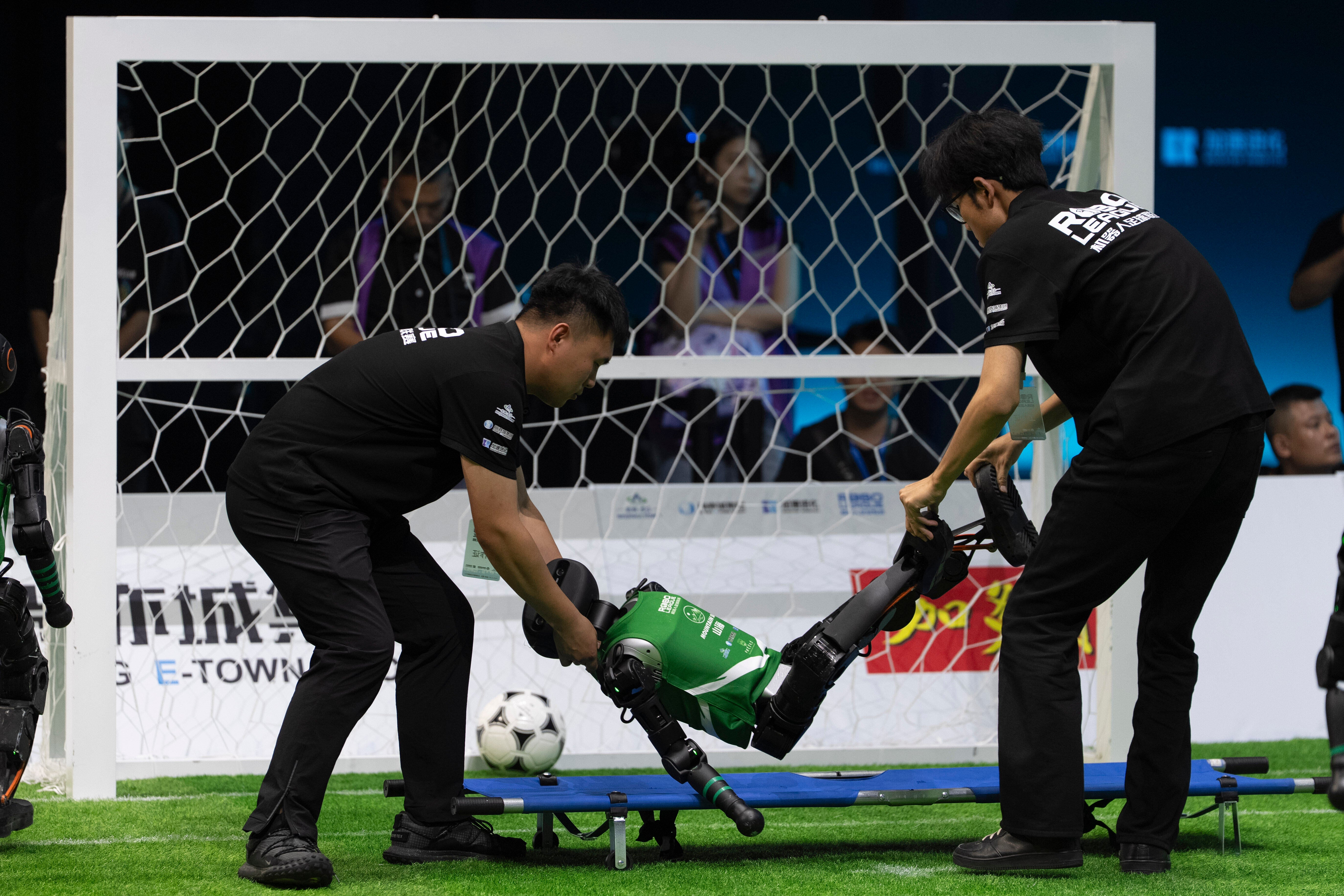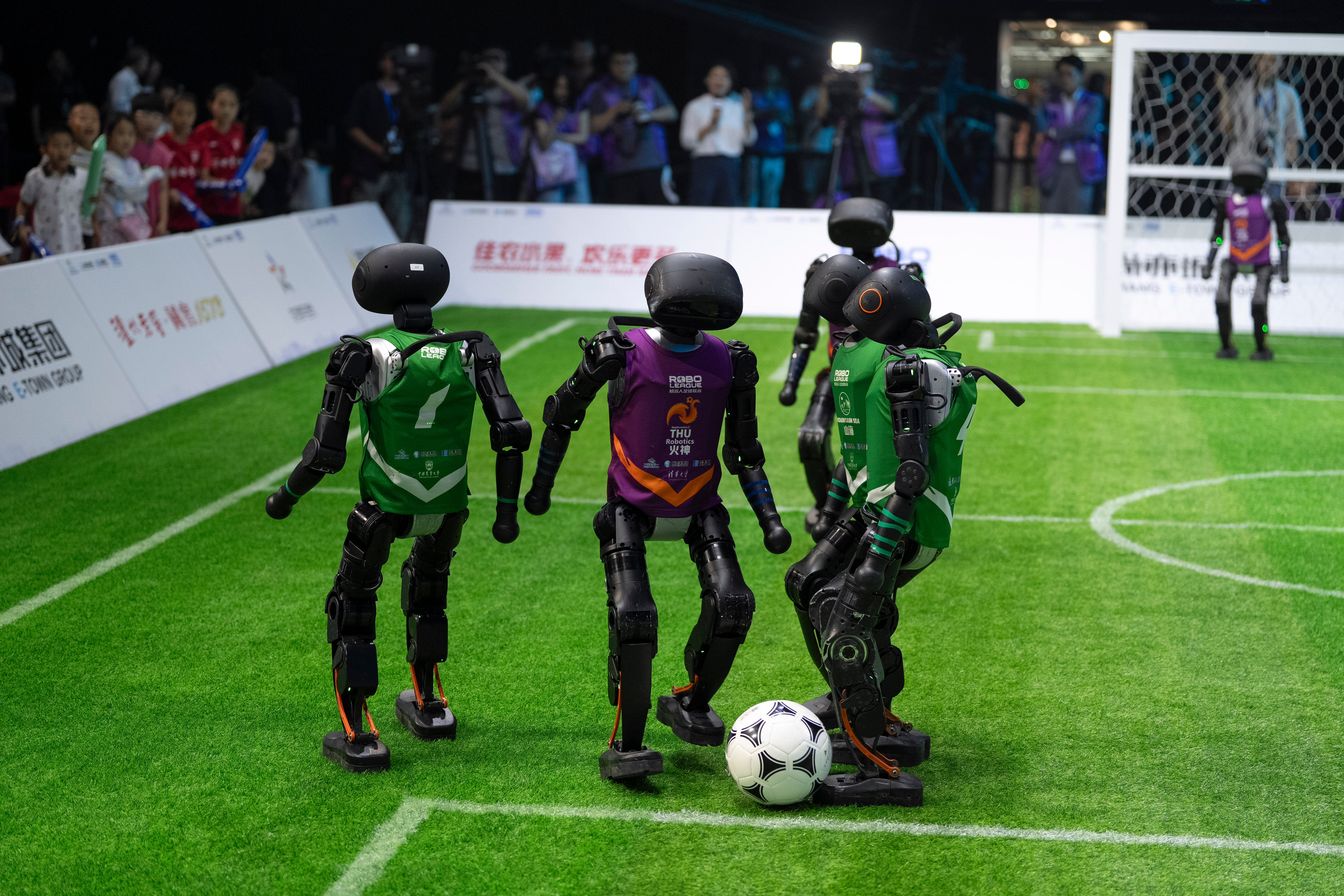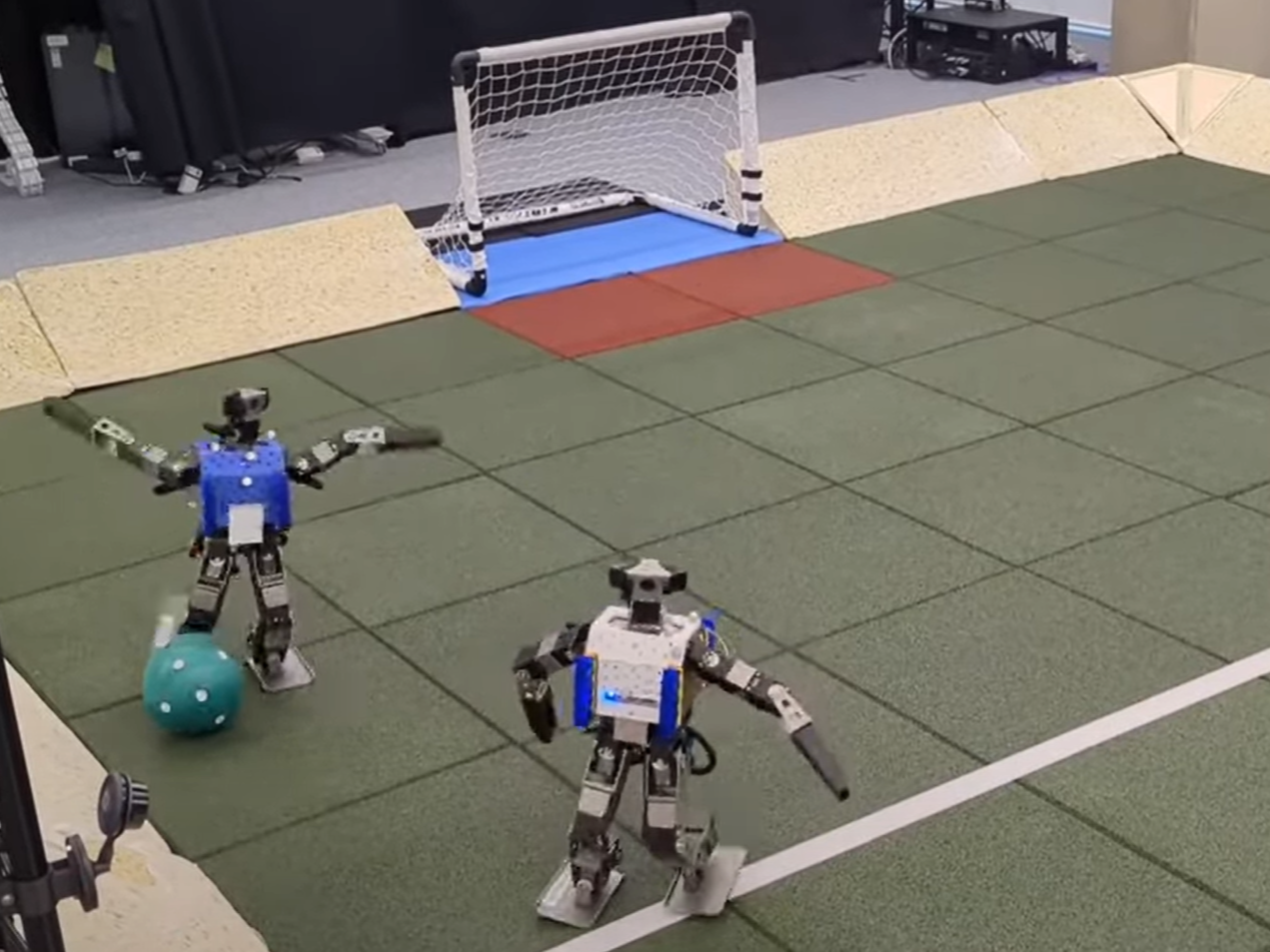Two robots were stretchered off after collapsing during the first ever humanoid football match powered entirely by artificial intelligence.
The event in Beijing saw four teams face off in fully autonomous three-on-three games over the weekend, which took place without any human intervention or supervision.
Equipped with advanced visual sensors, the robots were able to identify the ball and navigate the field.
They were designed to stand up on their own after falling, however during the match, some still had to be carried off the field on stretchers by humans after failing to return upright.
Other robots struggled to kick the ball, while slow-motion collisions were also common between players.

The event was touted as a preview for the upcoming World Humanoid Robot Games in China, and followed the first ever humanoid boxing match in the country earlier this year.
China is stepping up efforts to develop AI-powered humanoid robots, using sports competitions like marathons, boxing, and football as a real-world proving ground.
Cheng Hao, founder and CEO of Booster Robotics, the company that supplied the robot players, said sports competitions offer the ideal testing ground for humanoid robots, helping to accelerate the development of both algorithms and integrated hardware-software systems.
He also emphasized safety as a core concern in the application of humanoid robots.
“In the future, we may arrange for robots to play football with humans. That means we must ensure the robots are completely safe,” he said.
“For example, a robot and a human could play a match where winning doesn’t matter, but real offensive and defensive interactions take place. That would help audiences build trust and understand that robots are safe.”

Booster Robotics provided the hardware for all four university teams, while each school’s research team developed and embedded their own algorithms for perception, decision-making, player formations, and passing strategies—including variables such as speed, force, and direction, according to Cheng.
In the final match, Tsinghua University’s THU Robotics defeated the China Agricultural University’s Mountain Sea team with a score of 5–3 to win the championship.
Mr Wu, a supporter of Tsinghua, celebrated their victory while also praising the competition.
“They (THU) did really well,” he said. “But the Mountain Sea team (of Agricultural University) was also impressive. They brought a lot of surprises.”

Other leading AI firms are using football as a method for developing human-level artificial intelligence, with Google’s DeepMind demonstrating miniature football-playing robots in 2023.
The robots displayed basic strategic understanding of the game, such as blocking opponents’ shots, however it was similarly undynamic affair.
Additional reporting from agencies




